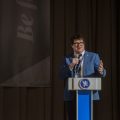If you are planning a long-term business trip to Moscow with your family, you might want to choose a private secondary school for your children.
The first option expatriate parents should consider is international schools. These schools help smooth the adaptation period and are great for expat children.
Moscow has many educational institutions for foreigners temporarily residing in the city. These include a number of British schools, the Anglo-American School of Moscow, German, French, Italian, and other international schools. Most of them offer educational programs for both Russian and non-Russian citizens.
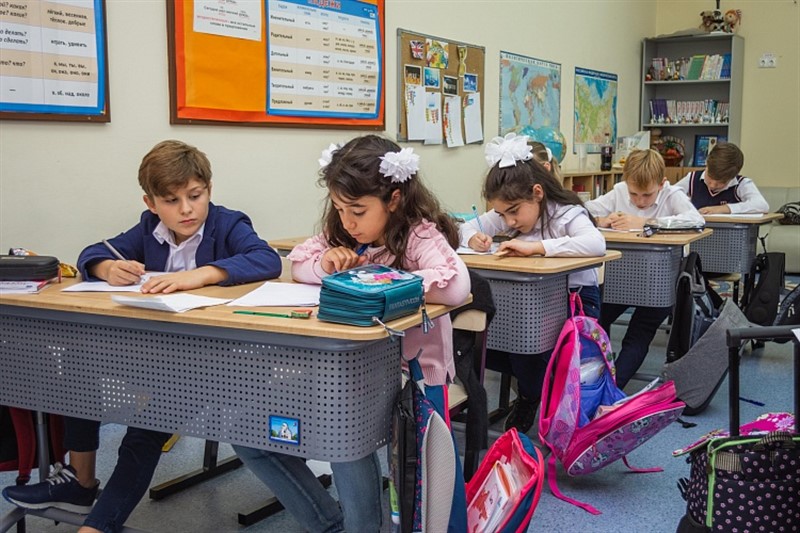
The British International School
International schools in Moscow are mostly chosen by expats (people working in embassies and international companies) and Russian citizens who aim for an education that meets high international standards and allows for entering universities worldwide.
The English curriculum used in Moscow international schools provides advanced written and oral English communication skills and an overall education that is on par with the best schools in Great Britain.
The international curriculum allows students to get an excellent knowledge of English (and other languages), Mathematics, Natural Sciences, Social Studies, Arts, Music, Computer Skills, and Physical Education. International schools rely on the corresponding tried-and-true national educational programs that can also incorporate the basics of the Russian school curriculum.
Choosing the Right International School in Moscow: Tips for Expatriate Parents
First and foremost, get the answers to the following questions:
- Does ALL the teaching staff consist of highly qualified experienced native English speakers?
- How long are the teachers planning on staying in Moscow?
- Does the tuition fee include all the hidden costs such as expenses on transport, uniforms, extra-curricular activities, meals, etc.?
- Was the school founded in Moscow or is it a part of an international network?
What Program Does the School Offer?
Depending on the type of certificate, international schools may be divided into those whose English programs only provide education and preparation for examinations and those that can also conduct tests and exams. Some schools use Russian programs complemented by subjects from programs of the University of Cambridge or the International Baccalaureate.
It’s important to note that private international schools in Moscow can use either the National English Curriculum or the International Baccalaureate Program and, upon graduation, students get an A-Level or an IB diploma respectively. Both programs are recognized by leading universities worldwide, but the principles they are built upon are essentially different. You should take this into consideration when choosing a school for your child.
What Is the Difference Between IB and A-Level?
A-Level
For the A-Level qualification, students are supposed to choose several subjects (minimum 4) that correspond to the courses they will take at university/college, as well as to their future profession. For example, children interested in exact or natural sciences may want to pick Physics, Mathematics, Biology, and Chemistry, whereas students who are good at humanitarian disciplines will likely choose to study languages (English, French, Russian, Spanish, etc.). Likewise, those interested in economics can opt for Mathematics, Economics, Politics, and English.
It is worth noting that the A-Level curriculum is sufficiently different from the Russian academic program for Grades 10 and 11 according to which students take more than 4 subjects and, therefore, have to spend their time on disciplines that are of minor importance to them.
IB (International Baccalaureate)
Just like A-Level, IB, or International Baccalaureate, is a two-year pre-university program. Over the last few decades, IB has grown into a serious competitor to the A-Level program in Great Britain. In private English schools, International Baccalaureate (IB) is considered to be a valid program for the sixth form. Moreover, all British universities accept IB diplomas.
The IB program suggests that students will take 6 subjects from 6 subject groups: Second Language, Individuals and Societies, Experimental Sciences, Mathematics, Arts, and First Language. Instead of Arts, they can choose one additional subject from any other group. Studying subjects from different subject groups helps students to develop their intellectual skills and sufficiently broaden their perspective on life. It’s important to note that three of the subjects are studied at Higher Level (HL), and 3 — at Standard Level (SL).
While universities welcome IB graduates, the admission requirements for them tend to be higher than those for A-Level diplomas. The entry scores can be as high as 38-39 points.
The A-Level program is recommended to students who:
- are determined to continue their studies exclusively in England (Wales, Northern Ireland);
- have no doubts as to their future profession (I set my mind on becoming a physicist/economist).
Universities of Scotland don’t recognize A-Levels. Instead, they have their own certification system called Advanced Higher.
The IB DP program is recommended to students who:
- have not yet chosen the country where they will get higher education;
- are not 100% sure about their future profession (I might become an architect, a painter or a physicist/chemist).
[colonizator_wrap][colonizator_col]
A-Level Schools in Moscow:
CIS (Cambridge International School)
British International School
Russian International School
International School of Moscow
English International School of Moscow
Linguistics Secondary Schools’s British Lyceum
[/colonizator_col][colonizator_col]
IB Schools in Moscow:
Anglo-American School of Moscow
British International School
European Gymnasium
Moscow Economic School
School 1434 Ramenki
School of Young Politicians (SYP) — Gymnasium 1306
Gymnasium 1404 Gamma
Brookes Moscow
Letovo School
Romanov School
Moscow School 45
Moscow School 1329
Moscow State School 1505 Preobrazhenskaya
[/colonizator_col][/colonizator_wrap]
Is It Possible for Students of International Schools in Moscow to Be Transferred to Schools of the United Kingdom or Other International Schools?
Parents who live abroad and know they will be repatriated while their children are still of school age should opt for a school that will allow for smooth integration into the education system in their home country.
International schools offer just that. Since the British National Curriculum is strictly defined, transfer from one British-style school to another is a very simple process. International schools do their best to make the transition still easier by providing all the necessary papers and documents and assisting new students during the adaptation period.
Tuition Fees in Moscow International Schools
The tuition fees charged by international schools in Moscow are rather high which is due to many factors, such as the specifics of the daily schedule that involves at least 4 high-quality meals a day, a great number of extra-curricular activities, and a highly qualified teaching staff who mostly have western roots. Besides, international schools are very well-equipped and have small classes — from 9 to 15 students. To maintain all of this, the schools need huge capital injections.
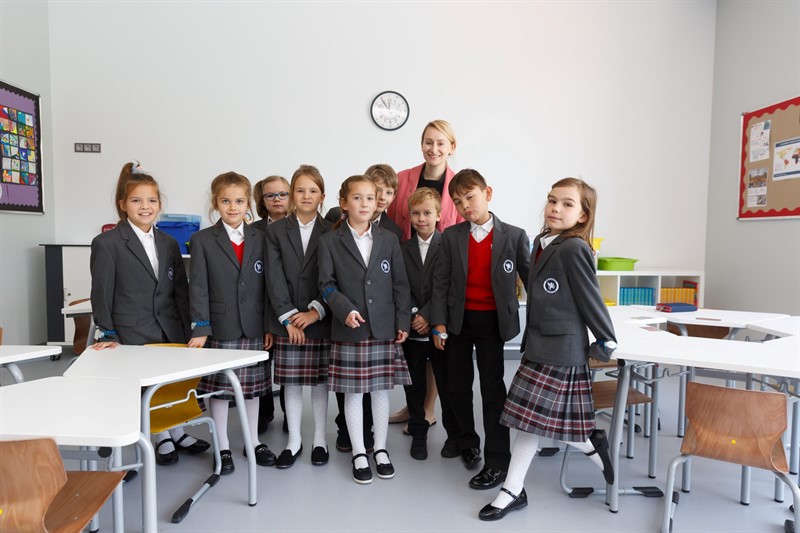
the Brookes School Moscow
A great part of international schools’ funding is spent on their improvement and development. On average, the tuition fee in these educational institutions starts from 7,500 U.S. dollars per year. Some schools also require an entry fee that typically starts from 2,000 U.S. dollars.
Special-Needs Education
Unfortunately, the situation with special-needs education in Russia needs some improvement and cannot be compared to that of Great Britain and the USA. Also, since international schools are typically small institutions, their SPED focus is not intense.
However, some Moscow international schools do provide a number of facilities to cater for SPED students. For example, AAS is trying to build an inclusive environment that would meet a wide range of students’ special needs. The school encourages a friendly, supportive atmosphere in the classrooms and welcomes the collaborative efforts of teachers, students, and parents. At the moment, AAS accepts students with mild to moderate special needs.
Extracurricular Activities
Oftentimes, expat children may find it challenging to adapt to their new life abroad. While many of them are used to living in private houses with backyards, in Moscow they will likely find themselves in tall buildings with less personal space.
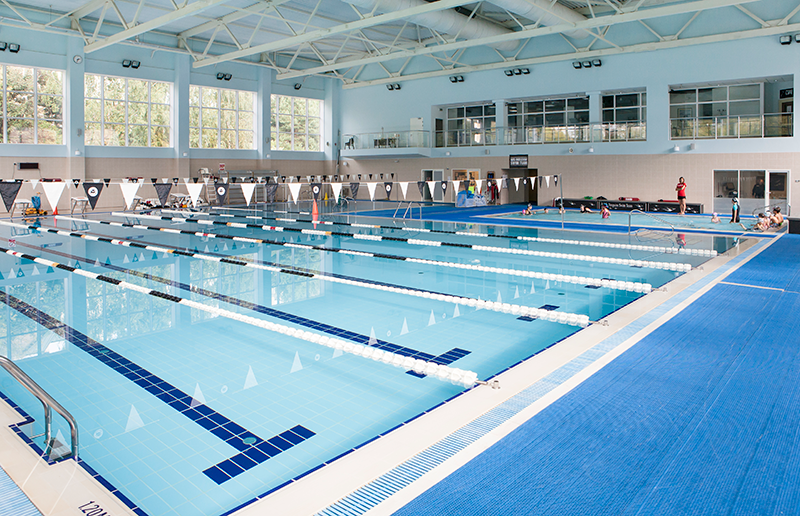
The Anglo-American School of Moscow
To help them adjust to the new environment, it is vital to engage them in various sports and other active pastimes. School extracurricular activities are perfect for that — they allow your children to stay fit, active and entertained while also sparing you the necessity to overcome the problem of the language barrier you might face in other Moscow sports clubs.
Location
Another important thing to consider when choosing a school for your child is its location. Moscow is a densely populated megacity with crazy traffic (which is getting crazier by the day), so it makes a lot of sense to choose a school close to where you will live. Otherwise, you are running the risk of spending hours in traffic jams daily and, therefore, starting your day much earlier and ending it much later than you would expect.
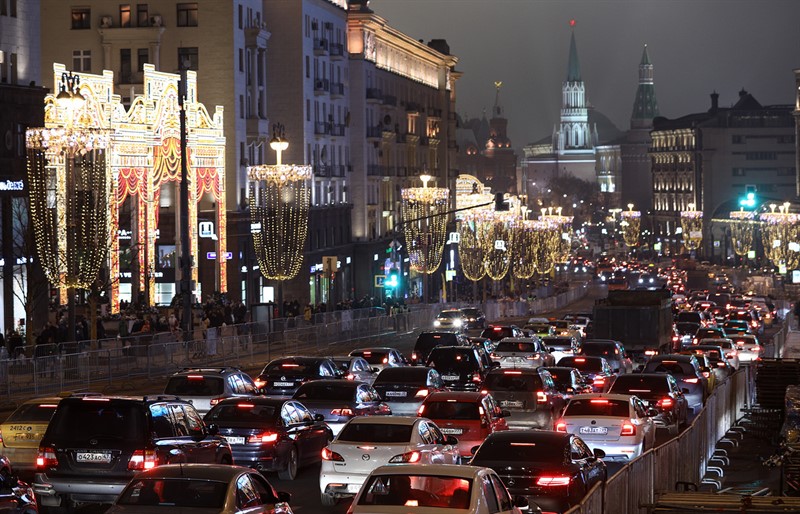
Traffic in Moscow
Alternatively, you can decide on the school first and then make sure your apartment is in the same area.
Neighborhoods
The only international schools in Moscow you can easily access by the metro are EIS and Brookes. Other schools are located in more remote areas. For example, AAS (adjacent to the Pokrovsky Hills housing community) and BIS lie in a 20-minutes ride from the center of Moscow, while to get from the city center to Rosinka, another school in a gated housing community, it will take you over an hour. Anyway, for an extra fee, all the schools provide a bus service.
Before you decide on a school, it is highly recommended to measure the time your trip to school will take — unless you want your child to work on his/her homework in the back seat of your car. Or, better yet, choose a school first and then find a place to live nearby.
Top International Schools in Moscow
British International School: Meeting International Standards of Education in Moscow
The British International School is an institution that has a rich history and meets international educational standards. Students get an opportunity to learn several languages and practice their skills with native-speaking teachers and classmates who represent 65 nations of the world. The school welcomes children between 3 and 18 years of age.
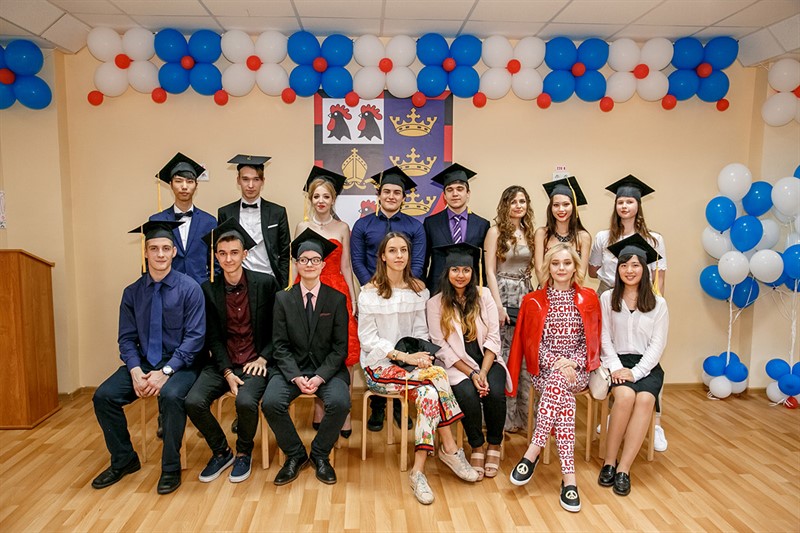
At the end of studies, graduates receive internationally recognized certificates offering wide opportunities for further education and future careers.
MCS British school
High-standard UK education in the centre of Moscow with MCS British School.
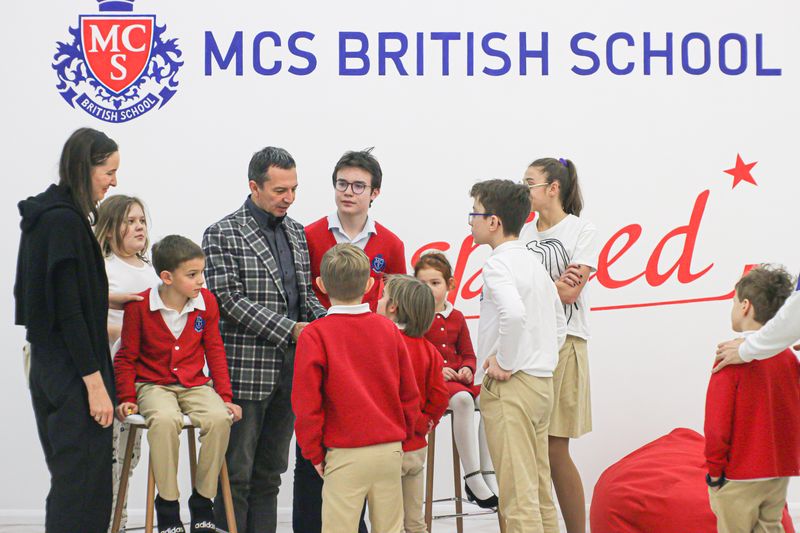
The school was established by a group of educators with a passion for creating developmental opportunities and is governed as such. MC Education is a growing educational holding expanding into new areas of education and expanding its schools. Researching best school and teaching practices around the world, adopting advanced approaches to personal development for staff and students and reviewing standards to meet the needs for the future.
- We follow the National Curriculum for England and integrate research elements from the International Baccalaureate programme.
- The Russian curriculum in taught in full. Assessments are conducted every trimester as well as at the end of the year according to Russian educational quality standards.
Brookes Moscow
Founded in 2018, the Brookes School Moscow is an international private mixed day school where all subjects are taught in English. The institution comprises a 240-child kindergarten for children from 2 years old, and a 550-student school for students from 6-7 years old.
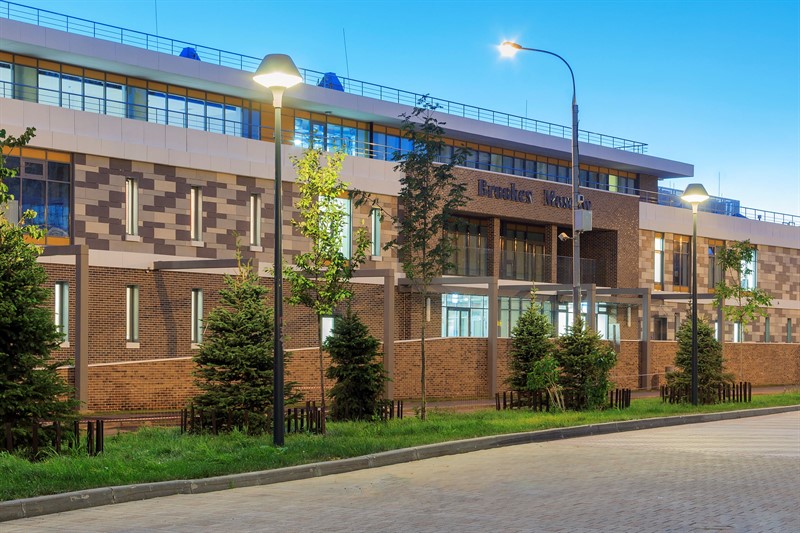
The Brookes School is centrally located in one of the most picturesque parts of Moscow, near the Botanical Gardens, and occupies a new building specially designed and optimized to meet the needs of students.
The English International School: Day School and Kindergarten (Ages 3-17)
Located on three campuses in various parts of Moscow, the English International School is well-recognized for its superb level of education. EIS follows the English National Curriculum and conducts A-Level and IGCSE examinations. All teachers at the school are native English speakers with excellent references from their previous employees.
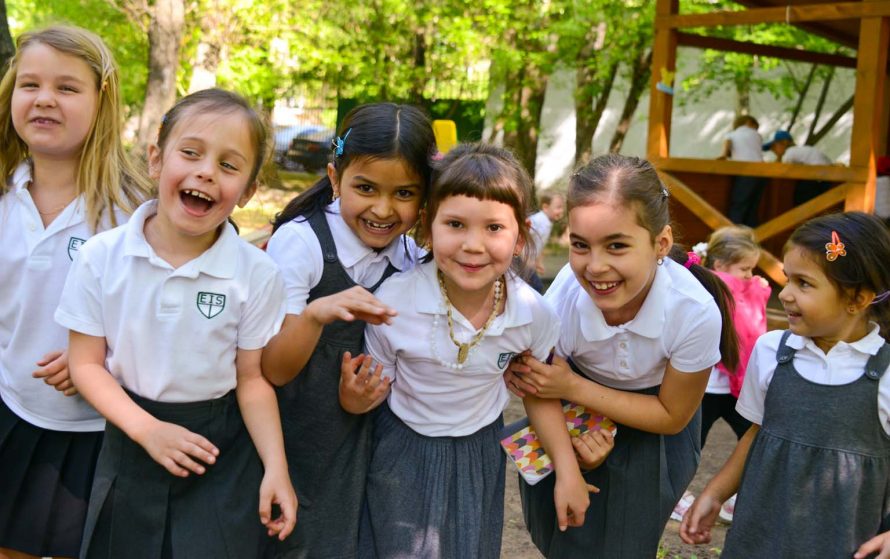
The students (aged 3 to 18) are offered a great number of facilities such as interactive whiteboards, laptops, iPads, well-stocked libraries, modern safe playgrounds, and sports areas, excellent catering, etc.
All three campuses are very conveniently situated within a walking distance from metro stations.
EIS is British owned and boasts delivering the best of a British education in Moscow.
Anglo-American School in Moscow
Founded in 1949, the Anglo-American School of Moscow offers international educational programs for students from 4 years old to Grade 12. The school is run by the embassies of Great Britain, Canada, and the USA, and is designed for children of embassy staff and employees of American companies residing on the territory of the Russian Federation. All subjects at AAS are taught in English.
The Anglo-American School follows the British, Canadian and American curriculums. The education process is divided into three stages: Elementary School (up to Grade 5), Middle School (Grades 6 to 8) and High School (Grades 9 to 12).
In High School, students take special courses preparing them for particular overseas higher education institutions. Upon graduation, students receive IB (International Baccalaureate) diplomas.
Cambridge International School: Early Learning Educational Program
CIS offers educational programs for ages from 2 up to 18. Students study two languages — Spanish and English — focusing on the latter. Upon graduation, they take examinations that allow them to easily enter any university or college worldwide. Graduates receive two diplomas — one of the Russian and the other of the international standard. The school implements a holistic approach to education and offers a great variety of sports and creative activities (dancing, choreography, singing, etc.).
International School of Moscow: Meeting International Standards While Preserving the National Identity
The International School of Moscow is a unique educational institution that offers a high-quality, globally recognized education while preserving the national cultural identity. The subjects are taught in two languages (Russian and English) by the best teachers from Russia and Great Britain. ISM welcomes children from 2 years of age.
The school practices a holistic approach to education and encourages students to be engaged in sports and arts, and develop their sense of purpose, leadership skills and thirst for knowledge. ISM graduates can continue their education abroad.









